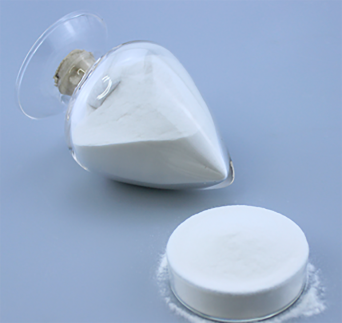
Jul . 21, 2024 01:52 Back to list
Exploring the Advantages of HPMC Purchase for Enhanced Product Performance and Stability
The Rise of HPMC A Market Buyer's Guide
Hydroxypropyl Methylcellulose (HPMC) is gaining significant attention in various industries, including pharmaceuticals, food, and construction. As a vital ingredient, its diverse applications make it a key product for businesses looking to enhance product quality and performance. This article aims to delve into the benefits and applications of HPMC, guiding potential buyers in understanding its value.
What is HPMC?
HPMC is a non-ionic, water-soluble polymer derived from cellulose, a natural polymer sourced from plant fibers. It is a white, odorless powder that has the ability to form a gel-like consistency when mixed with water. Its unique properties, such as water retention, thickening, and emulsifying capabilities, make it an essential component in many formulations.
Applications of HPMC
1. Pharmaceutical Industry In pharmaceuticals, HPMC is commonly used as a binder, coating agent, and controlled-release agent in tablet formulation. Its biocompatibility ensures that it is safe for consumption, making it a preferred choice for manufacturers who prioritize quality and safety.
2. Food Industry HPMC serves as a food additive, where it functions as a thickening and stabilizing agent. It can be found in sauces, dressings, and frozen foods, enhancing texture and preventing ingredient separation. Its gluten-free nature makes it increasingly popular among health-conscious consumers seeking alternative ingredients.
3. Construction Sector In construction, HPMC acts as a crucial ingredient in cement-based products like tiles, plasters, and adhesives. It improves workability, enhances water retention, and increases the adhesion properties of the mixture, thus contributing to the durability of the final product.
4. Personal Care Products HPMC is also utilized in the cosmetics and personal care sector. It is a common ingredient in creams, lotions, and gels due to its emulsifying properties, which help stabilize products and enhance their feel on the skin.
hpmc buy

Buying HPMC What to Consider
When considering purchasing HPMC, buyers should focus on several key factors
1. Quality Standards Ensure that the supplier adheres to strict quality control procedures. Certificates such as ISO or GMP can provide assurance of the quality and safety of the HPMC.
2. Purity Level Depending on the application, consider the different grades of HPMC available. For pharmaceutical applications, higher purity grades may be necessary compared to those used in construction or food products.
3. Supplier Reputation Research potential suppliers to gauge their market reputation. Customer reviews, industry certifications, and years of experience can provide insights into their reliability.
4. Price Competitiveness While price should not be the sole determining factor, it is essential to compare costs across suppliers to ensure that you are receiving a competitive rate without compromising on quality.
5. Technical Support Choose suppliers that offer technical support. This can be invaluable when formulating products or troubleshooting issues related to HPMC application.
Conclusion
HPMC is becoming increasingly vital across various sectors due to its multifunctional properties. As more industries recognize its benefits, the demand for high-quality HPMC continues to surge. For potential buyers, understanding the applications, evaluating quality, and selecting the right supplier are crucial steps in harnessing the full potential of this versatile polymer. By making informed decisions, businesses can leverage HPMC to enhance their products and stay competitive in an ever-evolving market.
-
Unlocking the Benefits of HPMC Products: A Gateway to Versatile Applications
NewsAug.07,2025
-
Unleashing the Potential of HPMC Ashland: A Comprehensive Look
NewsAug.07,2025
-
Tile Bonding Cellulose: The Key to Superior Adhesion and Durability
NewsAug.07,2025
-
Hydroxypropyl Methylcellulose Powder: The Versatile Component in Modern Pharmaceuticals
NewsAug.07,2025
-
Hydroxyethyl Cellulose: The Versatile Solution for Various Industries
NewsAug.07,2025
-
Hydroxyethyl Cellulose (HEC): The Versatile Polymer for Various Applications
NewsAug.07,2025







